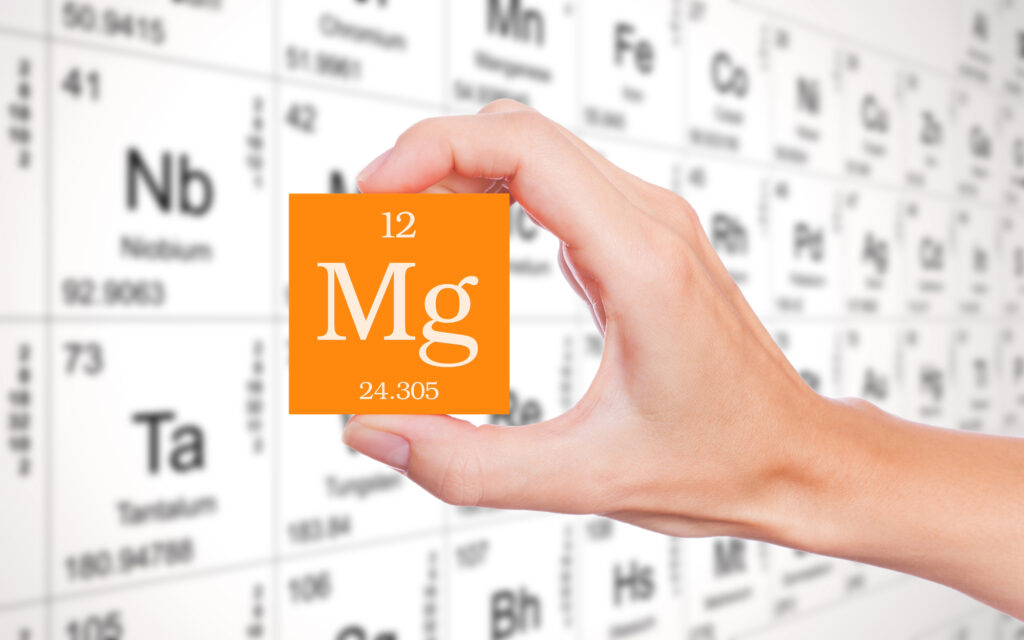An abundant mineral in the body that’s also naturally present in many foods, magnesium is a cofactor in more than 300 enzyme systems that regulate biochemical reactions in the body. It plays a key role in protein synthesis, muscle and nerve function, blood glucose control, and blood pressure regulation, as well as energy production, bone development, and DNA and RNA synthesis.
Now, a new study from the Neuroimaging and Brain Lab at The Australian National University in Canberra has found that increased dietary magnesium can improve brain health as people age. The researchers say that increased intake of magnesium-rich foods such as spinach and nuts can also help reduce the risk of dementia, which is the seventh leading cause of death worldwide.
The Study
In the study, which was published in the European Journal of Nutrition, researchers collected data from more than 6,000 cognitively healthy participants, aged 40 to 73, in the United Kingdom. Participants completed an online questionnaire five times over a period of 16 months. Their responses— based on 200 different foods with varying portion sizes—were used to calculate the participants’ daily magnesium intake. Researchers focused on magnesium-rich foods such as leafy green vegetables, legumes, nuts, seeds and whole grains to provide an average estimation of magnesium intake from the participants’ diets.
After compiling the data, they found that found people who consume more than 550 milligrams of magnesium each day have a brain age that is approximately one year younger by the time they reach 55 compared with someone with a normal magnesium intake of about 350 milligrams a day.
“Our study shows a 41 per cent increase in magnesium intake could lead to less age-related brain shrinkage, which is associated with better cognitive function and lower risk or delayed onset of dementia in later life,” says lead author and PhD researcher Khawlah Alateeq. “This research highlights the potential benefits of a diet high in magnesium and the role it plays in promoting good brain health.”
Conclusions
With the number of people worldwide diagnosed with dementia expected to more than double by 2050, the study’s results couldn’t be timlier. “Since there is no cure for dementia and the development of pharmacological treatments have been unsuccessful for the past 30 years, it’s been suggested that greater attention should be directed towards prevention,” says study co-author Dr Erin Walsh. “Our research could inform the development of public health interventions aimed at promoting healthy brain ageing through dietary strategies.”
The researchers also note that a higher intake of dietary magnesium from a younger age may protect against neurodegenerative diseases and cognitive decline by the time we reach our 40s. “The study shows higher dietary magnesium intake may contribute to neuroprotection earlier in the aging process and preventative effects may begin in our 40s or even earlier,” says Alateeq. “We also found the neuroprotective effects of more dietary magnesium appears to benefit women more than men and more so in post-menopausal than pre-menopausal women, although this may be due to the anti-inflammatory effect of magnesium.”
Regardless, she says, the study’s results play up the importance of this basic mineral to our health. “This means people of all ages should be paying closer attention to their magnesium intake.”






